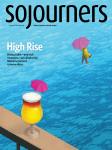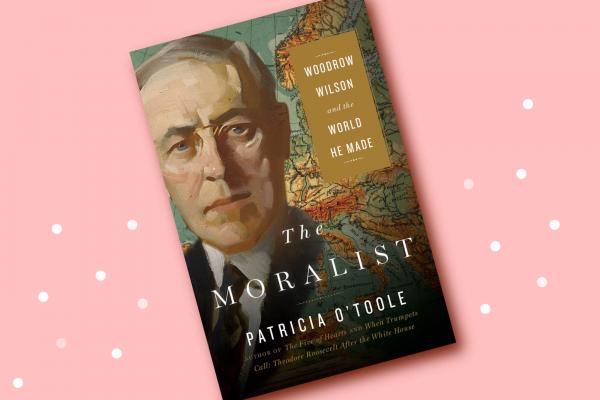IN SPRING 1917, as the stark brutality of World War I continued into its fourth year, U.S. President Woodrow Wilson reversed his advocacy for neutrality and declared war on Germany. This controversial decision allowed a financially strapped Britain to hold out against the German onslaught.
As the war ended in November 1918, Wilson, the tight-lipped, egotistical former Princeton University president and governor of New Jersey, emerged as a great hero in Europe. “Thousands ... knelt along railway tracks to offer prayers as he passed,” writes historian Patricia O’Toole in her recently released biography, The Moralist: Woodrow Wilson and the World He Made. “Wilson ... beamed and bowed and tipped his silk hat times without number.”
Back in the U.S., Wilson was not so popular. His party, the Democrats, lost both houses of Congress. On Oct. 2, 1919, Wilson suffered a paralyzing stroke after a month of travel to build support for the Treaty of Versailles to formally end World War I. It included a provision to create a League of Nations, an international body to negotiate disputes between countries that had been conceived of and championed by Wilson. The treaty was defeated in Congress.
O’Toole, whose biography of Henry Adams (The Five of Hearts) was a finalist for the Pulitzer Prize, frames her newest work around Wilson’s strong emphasis on “moral force.” His view was that “the greatest power of the United States was not its wealth but the moral force of its democracy,” she writes. Surprisingly, she spends little time exploring the effect of Wilson’s deeply rooted Presbyterianism. “Ultimately, I came to see the moral ideals of President Wilson as more secular than religious,” O’Toole explains, “the effect of his long formal education in history, government, and law.”
Beyond Wilson’s mixed record on international affairs, O’Toole and other historians note far-reaching and progressive legislation passed during his terms. This includes the Clayton Antitrust Act; a graduated income tax; a mandated eight-hour workday for interstate railroad workers; and, despite Wilson withholding support during his first term, eventual passage of the 19th Amendment, giving many American women the right to vote.
But O’Toole’s canny focus on Wilson’s “moral choices” also underscores the chilling dark side of his legacy—a dark side that reverberates in the early 21st century. “He is still remembered as the president who repressed dissent more often and more harshly than any other occupant of the White House,” O’Toole concludes. Her complex, often riveting narrative includes Wilson’s treacherous curtailment of civil liberties—most often aimed at socialists, immigrants from eastern and southern Europe, and publications that disagreed with his decision to go to war.
Eugene V. Debs, the Socialist Party leader who had run against Wilson for president, was arrested in 1918 and sent to prison for speeches against America’s entry into WWI. After the 1917 Bolshevik revolution in Russia, the “Red Scare” saw politicians and the press stoking paranoia about a leftist takeover of the U.S. by labor activists, anarchists, and real and perceived “radicals,” especially those who were foreign-born. Bombings, including of Attorney General A. Mitchell Palmer’s house in 1919 by an Italian anarchist, initiated thousands of investigations of immigrants and many subsequent deportations. Vigilante groups—pumped by Washington rhetoric against “aliens”—beat, murdered, and lynched those perceived as un-American or not sufficiently patriotic. Those included African Americans, who were long dismissed by Wilson in what O’Toole describes as an immoral bargain with Southern leaders.
In the end, Wilson conjures up a disturbing double image. He is both a modern, progressive internationalist, a prophet of globalized 21st century America, and a tyrannical racist, deeply uneasy with all who came from racial or national backgrounds outside of his narrowly defined social set.
This is an especially important read in today’s vindictive political climate. O’Toole demonstrates that any president with little self-knowledge and an authoritarian bent can corrode the country’s rule of law and sense of democracy if no one acts.

Got something to say about what you're reading? We value your feedback!
